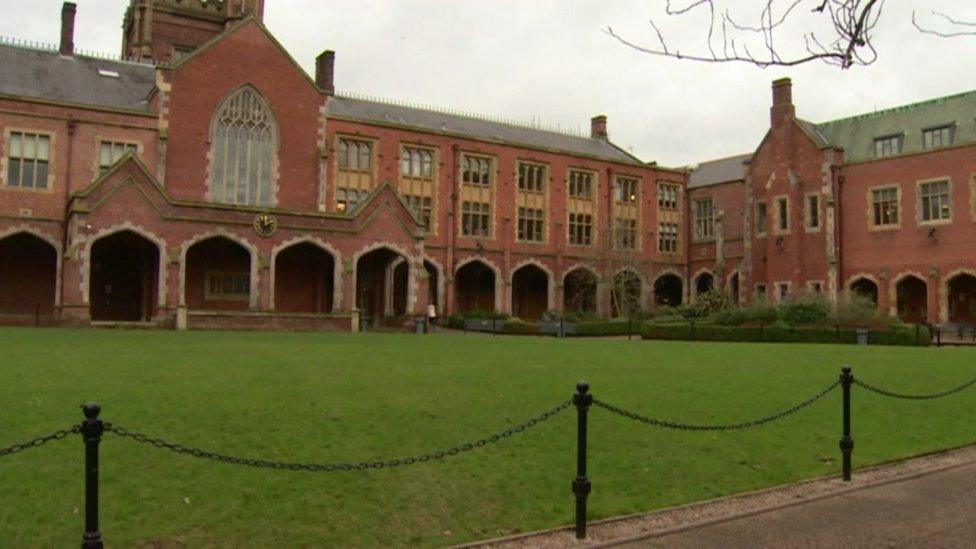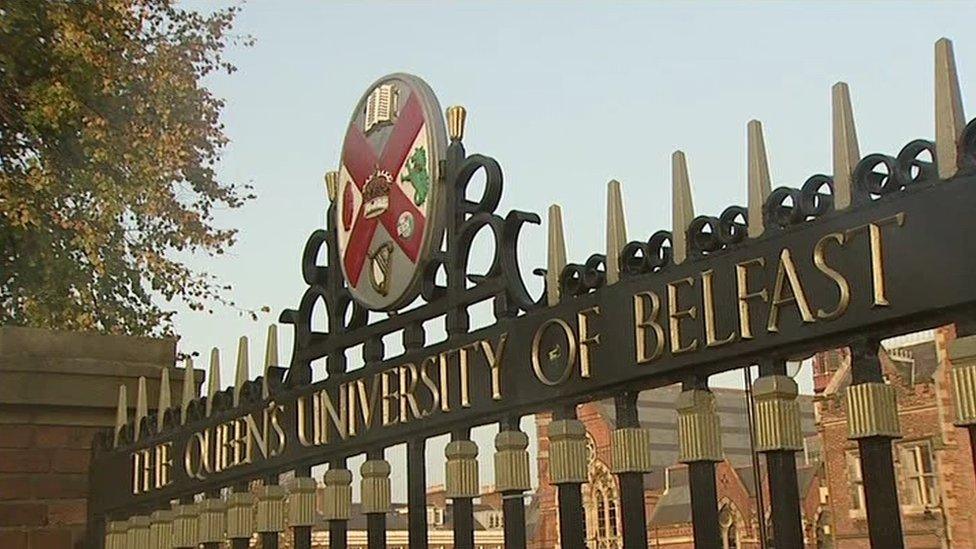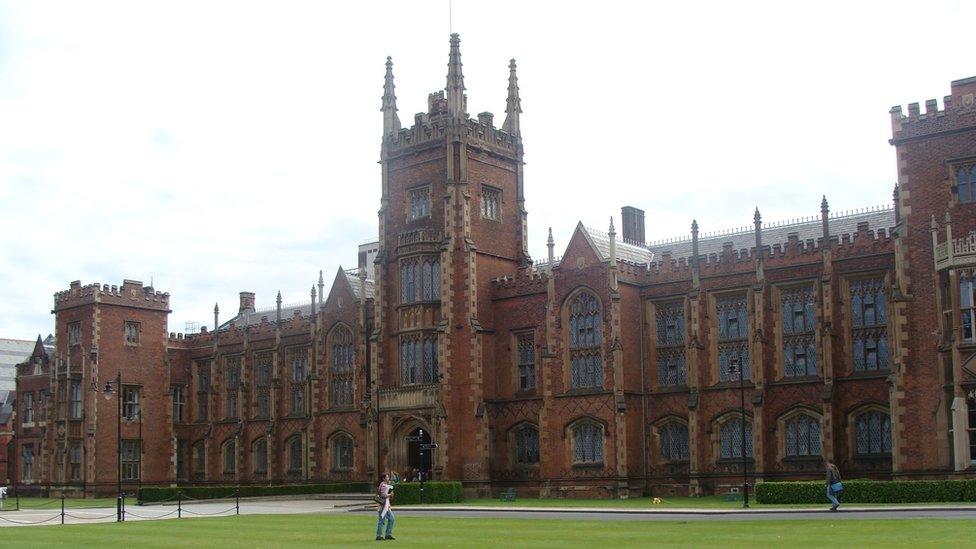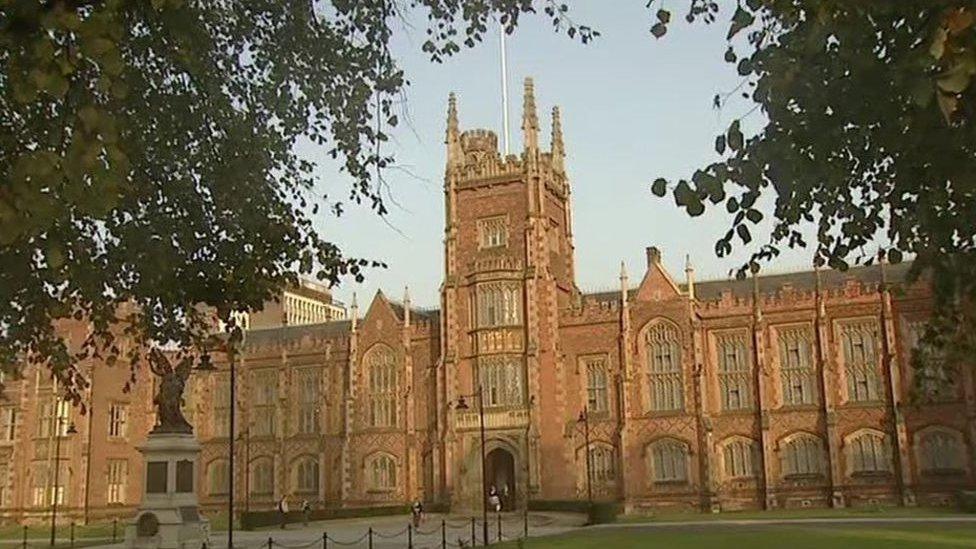Queen's University has 'toxic' management culture, survey suggests
- Published

Almost 100 ex-staff responded to the survey and many were critical of QUB management
A "toxic management culture" at Queen's University, Belfast, has been responsible for many academic staff leaving, a survey has suggested.
The exit survey of almost 100 former staff was carried out by the University and College Union (UCU) in 2017.
The document has been obtained by BBC News NI.
In a statement, the university said it was committed to promoting and providing a positive and enriching work environment.
The UCU contacted 140 - mainly academic - staff who left Queen's University Belfast (QUB) between 2015 and 2017.
Eighty five of them completed a detailed survey on their reasons for leaving QUB, while a further 12 provided interviews or written statements.
'Bullying'
Almost half of the departed staff who responded were from the faculty of arts, humanities and social sciences, while almost a third were from engineering and physical sciences.
The vast majority were permanent academic staff on full-time contracts.
A quarter of respondents to the survey said they left QUB due to a better offer from another university.
The UCU document said 90% of respondents "stated that their current working conditions are better than those enjoyed at Queen's".

QUB said it has an action plan to address issues highlighted in a previous staff survey
Among women, a lack of promotion opportunities and career prospects were cited as the main reasons for leaving.
"This confirms the existence of a general problem with promotion and career development at Queen's which is felt more acutely by women who face additional obstacles in climbing the career ladder," the survey stated.
Pressure of workload and poor relationships with line managers and senior management were also cited by a number of respondents among their reasons for leaving.
"Bullying is mentioned consistently throughout the qualitative data as being enduring, constant and accepted as part of management culture," the document said.
"The management culture is widely seen as toxic and punitive, overly focused on a reductive understanding of the university as a business."
'Overwhelmingly negative'
After the survey results were collected last year, the were given to senior managers and the university senate.
"It might be expected that a significant proportion of employees leaving an institution would be critical of their former employers," the document concludes.
"However, not only are the comments in the survey overwhelmingly negative, some themes are recurrent and align closely with the findings of the staff survey collected by Queen's management in April 2016."
In a statement, a QUB spokesperson said that in contrast to the numbers taking part in the UCU exit survey, 2,479 staff had participated in the 2016 staff survey facilitated by an independent external consultant.
"The university, in partnership with its staff, is implementing a comprehensive action plan in response to the priority areas identified in the staff survey," the spokesperson said.
"In addition, a new people and culture strategy has been developed and launched to further enhance the work environment."
However, Dr Fabian Schuppert from the UCU at Queen's said that the exit survey findings should lead to changes at the university.

Dr Fabian Schuppert said QUB "requires a bit of a cultural shift"
"We really need to address the issues so that people actually want to be at Queen's," he said.
"So that they have the feeling they can do the best research and the best work possible.
"I don't think that's difficult but it requires a bit of a cultural shift.
"People had the feeling that from the very top of the organisation they didn't feel supported enough."
- Published10 March 2018

- Published8 February 2018

- Published24 October 2016
